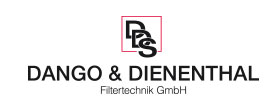


The tradition of iron mining goes back to the Celtic habitation in the region, approx. 2500 years ago. Excavations have discovered smelting furnaces made of mud and located on steep slopes which used the natural upward air current as combustion air and were thus able to attain smelting temperatures in excess of 1000°C. The long tradition of iron works in the Siegerland came to an end by closing of the last mine in 1962.
History:
„To have ideas is one thing, but to put them into practice quite another.“
The brass foundry worker and metal lathe operator AUGUST DANGO and the foundry worker LOUIS DIENENTHAL didn’t lack either ability. Both made full use of the boom of the so called era of promoterism with the objective of becoming their own masters.
The DANGO & DIENENTHAL enterprise was born in 1865.
What started as a small non-ferrous foundry in the iron city of Siegen, soon began to take on quite different dimensions.
Production was expanded to include blast furnace fittings and rolling mill bearings as well as metal castings – later also in three newly founded branches in Lorraine, Belgium and Mähren (Austria, later Czechoslovakia).
1901:
Over the years the company developed to become a machine building company. The first claygun was built in 1901 whereas the first forging manipulator and the first charging machine were delivered in the early thirties.
1936:
Nevertheless, the company was not spared the consequences of political upheavals and wars. At the end of the First World War, the works in Öttingen, Lorraine, and St. Léger in Belgium were lost as was the Witkowitz works in Mähren, one of the most important fitting factories in Czechoslovakia, at the end of the Second World War.
After World War II much energy had to be invested in the restoration of the Siegen works that had been utterly destroyed during the war. However, business went up and DANGO & DIENENTHAL continued to provide specialized solutions to its customers within the metallurgical industry.
In 1982 DANGO & DIENENTHAL restarted to found subsidiaries in different parts of the world in order to serve strong and growing local markets: South Africa (1982), North America (1986), Japan (1999) and India (2001). In 2003 the former competitors DANGO & DIENENTHAL and PAUL WURTH of Luxembourg merged their activities in the fields of cast house equipment and blast furnace measuring technology. The new joint company developes and markets the corresponding products under the name TMT – Tapping Measuring Technology.
Over the decades a wide range of developments for effective production and more humane working conditions at blast furnaces, steel mills as well as in forging plants have given DANGO & DIENENTHAL a name throughout Europe and the rest of the world.
DANGO & DIENENTHAL – a company with both internal ties to its workforce and external ties to its customers in the metallurgical industry.
DANGO & DIENENTHAL – a family owned operation that adapts constantly according to the requirements of a changing world in order to always serve its customers in the most appropriate way.















